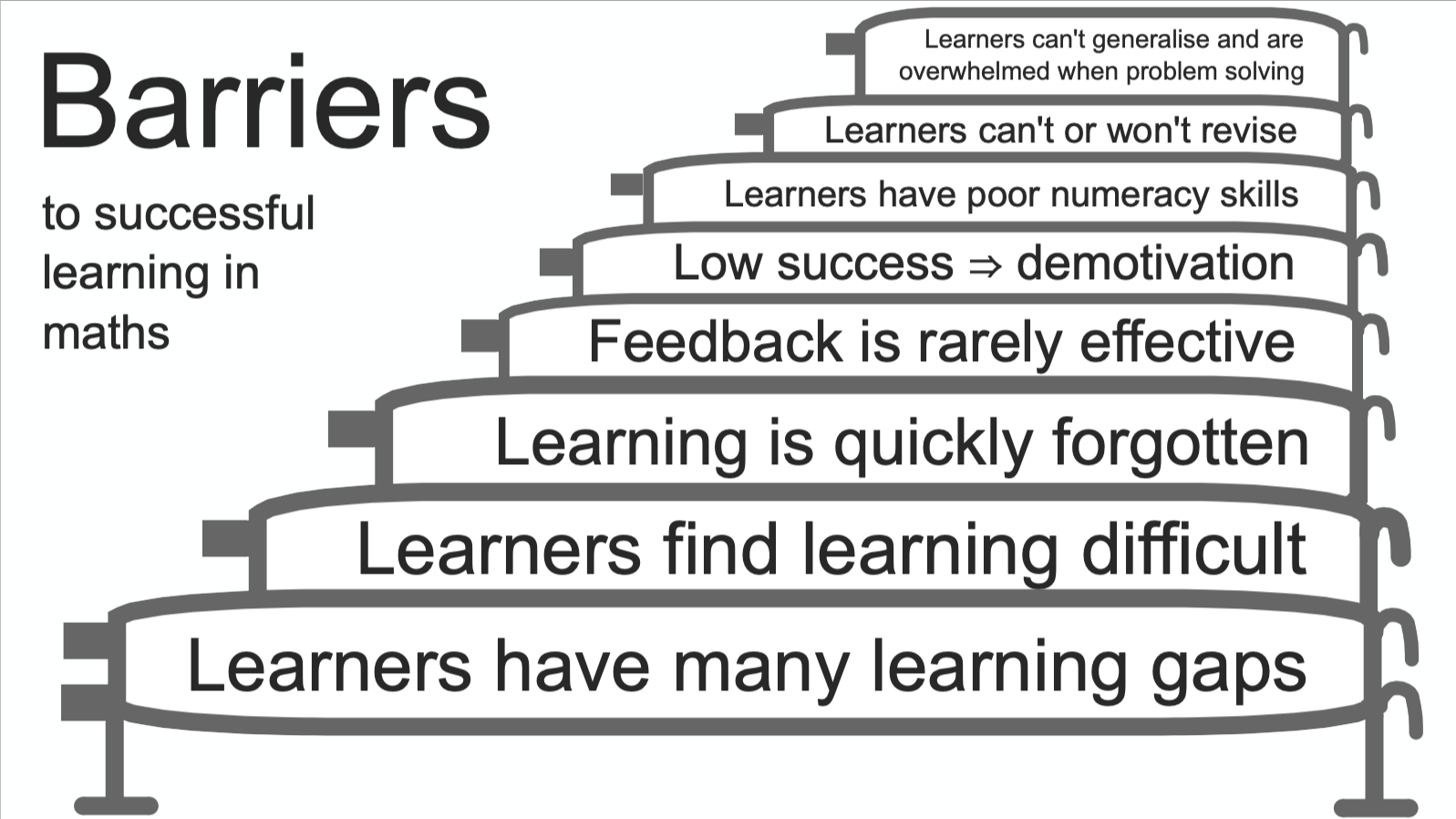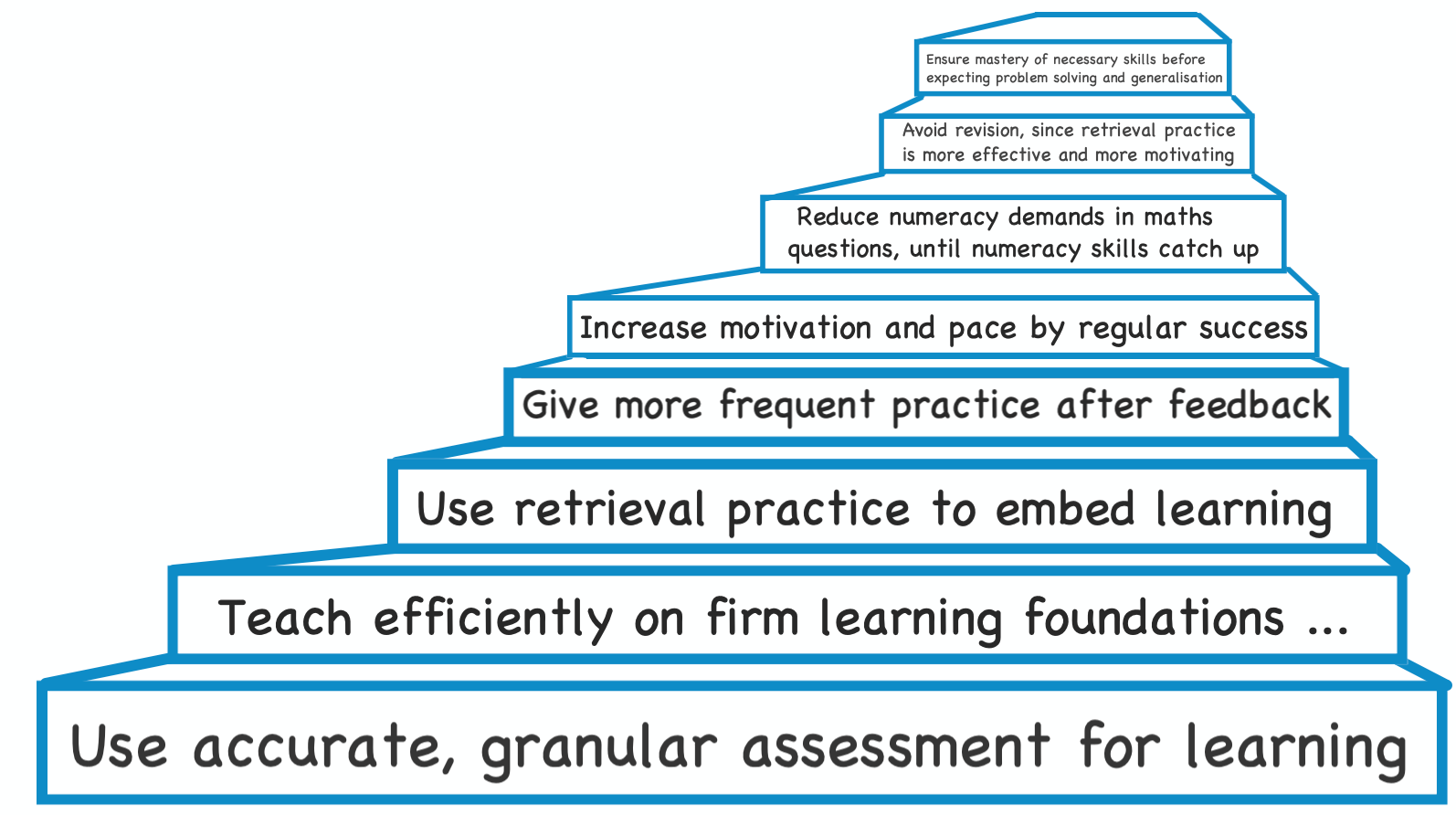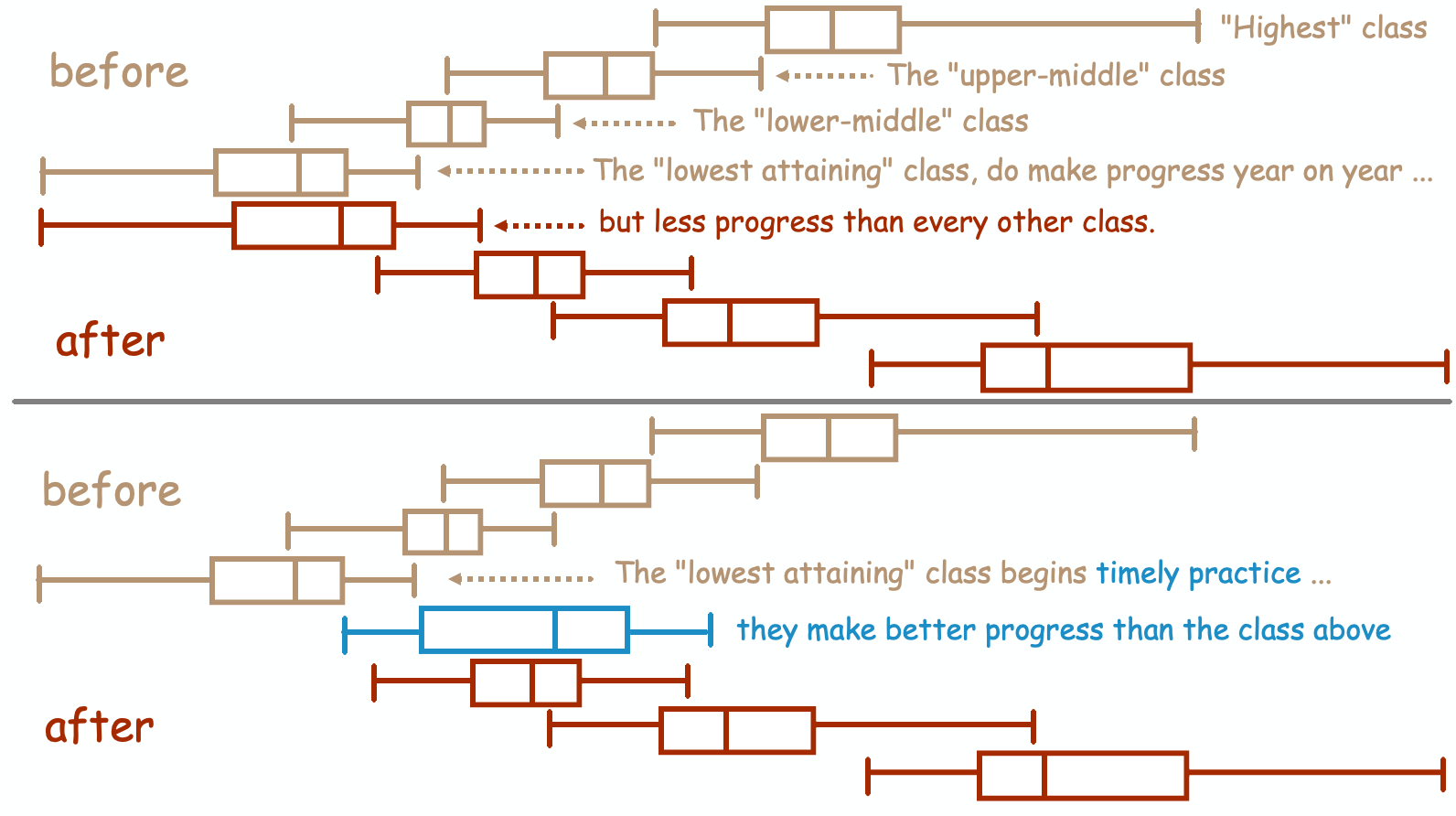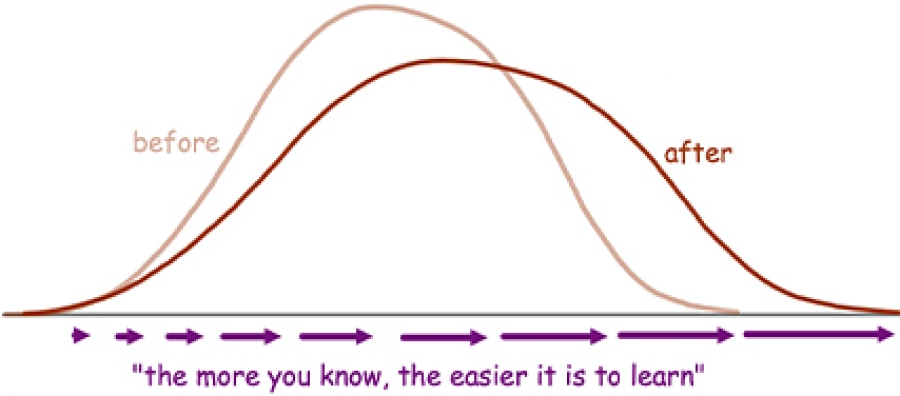
timely practice has been built to help maths teachers help learners get out of their learning trap, by turning each barrier into a step. See diagram below.

If, as a teacher of low attaining maths learners, you ever tried retrieval practice, no doubt you've encountered these problems:
- Learners undermine the accuracy of assessment for learning data and the effectiveness of retrieval practice by peer to peer copying.
- Learners are demotivated when they get too much retrieval practice wrong.
- Whilst retrieval practice is working on some topics, other topics are being forgotten.
Then you may be keen to have these questions answered:
Q1: Are there solutions to the problems teachers encounter when they begin retrieval practice with low attaining learners?
A1: Yes, the solution is personalisation of assessment for learning and retrieval practice.
timely practice was built for this.
Q2: What benefits could a school expect by using timely practice?
A2: Each step, which was a barrier, offers benefits, but applied together we see:
- hugely improved attainment,
- reductions in feedback and reteaching requirements,
- and in some cases improved attendance.
Q3: What degree of improved attainment could we expect?
A3: Currently, low attaining and underachieving learners in maths can be said to
- fall further behind their peers with each additional year of schooling
Although almost all learners do make progress, more highly attaining learners make more. (See above the grey line in the diagram below).

With our "proof of concept" trials, the lowest attaining class using timely practice made better progress than the "lower middle" class. In fact, within 1 to 2 years, they made so much progress that most learners had a higher attainment than most of the learners in the class above. (See below the grey line in the diagram above, and see our website for our actual data).
Q4 How much lesson time does timely practice require?
A4: Doing timely practice requires 10 to 15 minutes of each maths lesson to be set aside to do the jobs of: lesson warm up, assessment for learning, retrieval practice, review of retrieval practice, feedback and end of lesson assessment.
Q5: What does "doing timely practice" look like?
A5: Within the 10 to 15 minutes of timely practice time, each learner reviews their assessed assignment from last lesson and completes their new personalised PDF assignment made up of questions on a mix of topics selected by the timely practice app. Learners independently answer each question on the paper assignment. During this part of the lesson the teacher has time and head space to give feedback on last lesson's assignments.
Q6 How does timely practice help teachers to "teach efficiently on firm learning foundations"?
A6: The first requirement is obvious: Use fine detail assessment for learning data to teach flexible groups - each group learns on their firm learning foundations.
But the second less obvious: Teach smaller-bites from each topic in scheme of learning, and where there is time, and there will usually be time, spiral back to teach a little more on many of the topics several times a year. The table below explains why.

The timely practice app joins the "best bets" which help learners overcome their learning barriers together, giving teachers the opportunity to do what they are best at, planning, teaching and feedback.
Q7: What are the time commitments for teachers in terms of planning and preparation?
A7: For classes where all learners will use timely practice, with every learner moving along their own spiral of gentle but relentlessly rising expectations.
- Planning takes 1 to 2 minutes per lesson.
- Resourcing takes 2 to 7 minutes per lesson, depending on spread of attainment and the ease of printing.
- Assessment takes about a minute per learner per lesson.
For mixed ability classes - where only the targeted learners use timely practice - similar timings apply for the targeted learners in addition to the time required to prepare for the rest of the class.
Q8: How can I find out quickly if timely practice is worth the additional effort in my school?
A8: Compare the learning progress (the gain in retained learning i.e. how much new learning is retained 6 weeks after teaching) for:
- maths teaching as it is done currently in your school, for your chosen time frame (often 3 to 6 weeks) with
- maths teaching using timely practice for the same time period.
The timely practice trial is set up to make this easy, and the trial is free, in return for progress data.
Q9: Where can I find out more?
A9: Visit www.timelypractice.com and the explaining and training section in our customer knowledge base.
Of course do look at our EdTech Impact page, but remember that we are applying research in a novel and cutting edge manner, which has taken 9 years to develop. The first 4 reviews are based on proof of concept trials: "Would personalised retrieval practice and feedback increase progress over whole class retrieval practice and feedback?" the answer being a resounding yes.
Then came lock down. We've made good use of our time though. During the last 2 years we have
- added diagnostic assessment to the timely practice app,
- reduced the size of a easier bites of teaching in several topics,
- added extra topics suitable for primary schools.
Now busy maths teachers and non-maths teachers using timely practice, can be sure they begin teaching each learner on firm learning foundations.
We very much hope that you will take a gamble on us for transformative learning gains for low attaining and under achieving maths learners.
We have worked with over 10 classes and teachers and every time the teacher has been in the range "really pleased" right through to "astounded" with their learners' progress.
Our new version of the app is ready to collect accurate comparative progress data, and then do statistically accurate analysis. If you'd like to assist the learners you know will fall behind their peers now, or find out if forgetting is significantly contributing to low attainment then we'd love to have you on board!

















